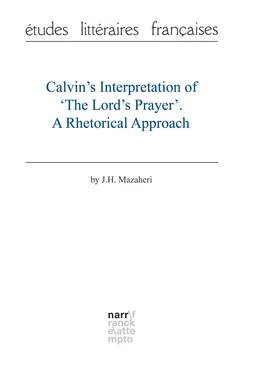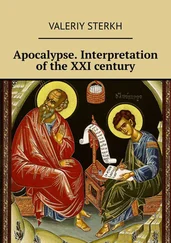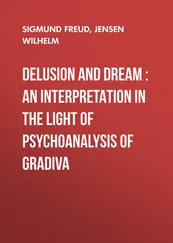Professor J.H. Mazaheri - Calvin's Interpretation of 'The Lord's Prayer'. A Rhetorical Approach
Здесь есть возможность читать онлайн «Professor J.H. Mazaheri - Calvin's Interpretation of 'The Lord's Prayer'. A Rhetorical Approach» — ознакомительный отрывок электронной книги совершенно бесплатно, а после прочтения отрывка купить полную версию. В некоторых случаях можно слушать аудио, скачать через торрент в формате fb2 и присутствует краткое содержание. Жанр: unrecognised, на английском языке. Описание произведения, (предисловие) а так же отзывы посетителей доступны на портале библиотеки ЛибКат.
- Название:Calvin's Interpretation of 'The Lord's Prayer'. A Rhetorical Approach
- Автор:
- Жанр:
- Год:неизвестен
- ISBN:нет данных
- Рейтинг книги:4 / 5. Голосов: 1
-
Избранное:Добавить в избранное
- Отзывы:
-
Ваша оценка:
- 80
- 1
- 2
- 3
- 4
- 5
Calvin's Interpretation of 'The Lord's Prayer'. A Rhetorical Approach: краткое содержание, описание и аннотация
Предлагаем к чтению аннотацию, описание, краткое содержание или предисловие (зависит от того, что написал сам автор книги «Calvin's Interpretation of 'The Lord's Prayer'. A Rhetorical Approach»). Если вы не нашли необходимую информацию о книге — напишите в комментариях, мы постараемся отыскать её.
Calvin's Interpretation of 'The Lord's Prayer'. A Rhetorical Approach — читать онлайн ознакомительный отрывок
Ниже представлен текст книги, разбитый по страницам. Система сохранения места последней прочитанной страницы, позволяет с удобством читать онлайн бесплатно книгу «Calvin's Interpretation of 'The Lord's Prayer'. A Rhetorical Approach», без необходимости каждый раз заново искать на чём Вы остановились. Поставьте закладку, и сможете в любой момент перейти на страницу, на которой закончили чтение.
Интервал:
Закладка:
Finalement, qu’en l’oraison particulière la langue mesme n’est point nécessaire, sinon d’autant que l’entendement n’est point suffisant à s’esmouvoir soy-mesme, ou bien que par esmotion véhémente il pousse la langue, et la contraind de se mettre en œuvre. Car combien qu’aucunesfois les meilleures oraisons se facent sans parler, néantmoins souvent il advient que l’affection du cœur est si ardente, qu’elle pousse et la langue et les autres membres sans aucune affectation ambitieuse. De là venoit qu’Anne, mère de Samuel, murmurait entre ses lèvres (I Sam. 1,13), voulant prier. Et les fidèles expérimentent iournellement en eux le semblable, quand en leurs prières ils iettent des voix et souspirs sans y avoir pensé. ( Institution III, xx, 33)2
As we can observe, Calvin’s theology closely follows the Holy Scripture. Indeed, what he says about silent prayer with such mystical fervor is inspired, at least partly, by the First Samuel . The first point is that words are not, in private prayer, indispensable—and actually the best private prayers might even be silent (“combien qu’aucunesfois les meilleures oraisons se facent sans parler”). The second point, which is the more significant as it reveals a less known aspect of Calvin’s thought, is the emotional element in prayer. The words emphasized are thus, “s’esmouvoir” (to be moved), “esmotion” (emotion), and “cœur” (heart). Furthermore, the adjectives “véhémente”, “ardente”, as well as the phrase “voix et souspirs” (voice and sighs), which ends this passage, all show how one can get emotional when one’s prayer is deeply felt. True religious people experience this kind of prayer, but only those familiar with Calvin’s works know how sensitive and fervent he himself must have been.3 Anyhow, the fact of the matter is that one can pray without uttering any word. Furthermore, sometimes, when one gets too emotional, the words come by themselves—one then prays extempore (“sans y avoir pensé”). Moreover, not only the tongue, but also other parts of the body, in an ecstatic state, might move in praying (“… qu’elle pousse et la langue et les autres membres”). All this has to be of course sincere, unostentatious, and not caused by any ambitious motive (“sans aucune affectation ambitieuse”).
III. Bodily Gestures
With regard to one’s posture and gestures in praying, such as kneeling, Calvin declares that these are “exercises” helping us to intensify our deference to God. In other words, they are helpful if sincerely felt, and not automatically or ritually performed: “Quant aux maintiens et façons extérieures du corps qu’on a coustume d’observer (comme de s’agenouiller et de se deffuler), ce sont exercices par lesquels nous nous efforçons de nous appareiller à plus grande révérence de Dieu” ( Institution III, xx, 33, 376).1 This is something everyone who prays, somehow at some point, thinks about. Calvin is quite concise on this subject, and has a liberal approach to it, thus remaining faithful to Jesus’ words. The only thing that really matters to him, is that prayer must be genuine and said with the utmost respect to God (“à plus grande révérence de Dieu”), and that is how one’s posture and gestures may become meaningful as well. If we feel that the act of kneeling down (“s’agenouiller”) better expresses our respect to the Father, then we do it withoutout thinking. The same thing could also be said about taking one’s hat off or just any garment—the verb “deffuler” usually refers, in Middle French, to removing one’s hat; but it could also apply to another garment, such an an overcoat. If we feel that we must remove it out of reverence for God, we do it. Here, one just follows the community’s customs (“coustume”). Nonetheless, the main point, implicitly expressed, is that a rite by itself is absurd, and only makes sense if it is observed when sincerely needed, in order to glorify God. To better explicit Calvin’s thought, we may think of Moses at the Burning Bush, a holy place where he felt that he had to remove his sandals. There Moses heard the Holy Spirit saying to him: “Remove the sandals from your feet, for the place on which you are standing is holy ground” ( Exodus 3: 5). So if God himself asks you to observe a certain rite—you hear his voice telling you what to do—, you do it. On the other hand, these rites are not important by themselves; that is why Jesus does not attach any importance to them. We just know how he prays himself: alone, with God, and kneeling down—as it is described in Luke 22: 41. Besides, at this particular moment, “In his anguish he prayed more earnestly, and his sweat became like great drops of blood falling down on the ground” (Luke 22: 44). This reveals the intensity of his feeling when communicating with the Father. Although Calvin does not refer to this passage here, he must have this type of examples in mind to understand what he means by “bodily gestures” in praying. Jesus’ ardor and passion are a perfect model of authentic prayer.
IV. The Way to Pray and the Duration of Prayer
Concerning the way to pray, or how to address God, Jesus says to his followers: “When you are praying, do not heap up empty phrases as the Gentiles do; for they think that they will be heard because of their many words. Do not be like them, for your Father knows what you need before you ask him” (Mat 6:7–8).1 Calvin comments the first part (Mat 6:7) as follows:
Il reprend un autre vice en l’oraison, assavoir l’abondance de paroles. Il use de deux divers mots, mais toutefois en un mesme sens. Car, en premier lieu, il met le mot de Battologie, et puis le mot de Polylogie, desquels le premier signifie une repetition et une redite superflue et affectee. L’autre signifie un babil sans substance. Or Christ reprend la folie de ceux lesquels desgoisent beaucoup de paroles, afin de mieux persuader à Dieu ce qu’ils demandent. Et à ceste doctrine n’est point contraire l’assiduité de prier, qui est louée souvent en l’Escriture. Car quand la priere est prononcee d’une vraye affection, la langue ne s’avance point plus que le cœur. En apres, on ne pretend point de plaire à Dieu par une vaine suite de propos, mais plustost le cœur fidele deslasche ses affections, ne plus ne moins que fleches, pour parvenir iusques au ciel. Cependant ceci est pour condamner la superstition de ceux qui pensent par grans barbotemens rendre Dieu propice à leurs prieres. Duquel erreur nous voyons la Papauté tellement abbruvee, que le babil est là tenu pour la plus grande vertu de la priere. Car tant plus un chacun barbote longuement, d’autant plus estime-on qu’il ait bien prié. Davantage, leurs temples resonnent sans cesse de longue chantrerie, comme si la douceur du son retentissoit dedans les aureilles de Dieu pour le flechir à eux. ( Commentaires 123)2
A too long prayer with “abondance de paroles” could even be unethical, if the words are superfluous. The Evangelist uses the Greek term “battology” (βαττολογία), which means, Calvin reminds the reader, vain repetition of words and an affected speech (“une repetition et une redite superflue et affectee”). The Gospel also uses the term “polylogy” ( πολυλογία ), meaning verbosity. The theologian describes it as “un babil sans subtance”. The word “babil” (futile speech) is stressed by the redundant “sans substance” (without any content). Christ, Calvin points out, rebukes people who are mad enough (“reprend la folie”) to think that by repeating and by being loquacious (as they “desgoisent beaucoup de paroles”), they can persuade God to do what they are requesting from Him (“ce qu’ils demandent”). Perseverance in praying (“l’assiduité de prier”) is not of course a problem. On the contrary, it is often praised in the Scriptures (“louée souvent en l’Escriture”), for when the words come from the heart (“prononcee d’une vraye affection”), the speech does not expand beyond the heart (“la langue ne s’avance point plus que le cœur”). We note again the emphasis put on the word “cœur” (heart). It is thus repeated in the following sentence. The faithful heart , in a true prayer, “unburdens” itself (“le cœur fidele deslasche ses affections”). The idea of superstition is also important in this passage: Calvin contends that those who make too long and repetitive prayers are just being “superstitious”. He condemns “la supersition de ceux qui pensent par grans barbotemens rendre Dieu propice à leurs prieres.” I will not insist on Calvin’s criticism of the Pope and his court (“la Papauté”), but rather on his disgust of long, futile, and artificial prayers, as well as his good intention to fight against “superstition” and promote real religion (“ceci est pour condamner la superstition de ceux qui…”). He thus accumulates a number of terms and expressions related to false prayers: “grans barbotemens”, “babil”, “barbote”, “longue chantrerie”…. He ends by saying that those who commit these acts cannot fool God—He will not listen to them, however beautiful their prayers may sound (“la douceur du son…”).
Читать дальшеИнтервал:
Закладка:
Похожие книги на «Calvin's Interpretation of 'The Lord's Prayer'. A Rhetorical Approach»
Представляем Вашему вниманию похожие книги на «Calvin's Interpretation of 'The Lord's Prayer'. A Rhetorical Approach» списком для выбора. Мы отобрали схожую по названию и смыслу литературу в надежде предоставить читателям больше вариантов отыскать новые, интересные, ещё непрочитанные произведения.
Обсуждение, отзывы о книге «Calvin's Interpretation of 'The Lord's Prayer'. A Rhetorical Approach» и просто собственные мнения читателей. Оставьте ваши комментарии, напишите, что Вы думаете о произведении, его смысле или главных героях. Укажите что конкретно понравилось, а что нет, и почему Вы так считаете.












